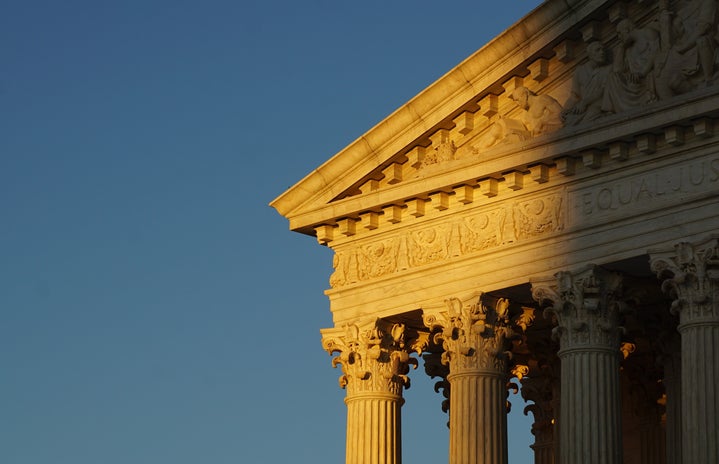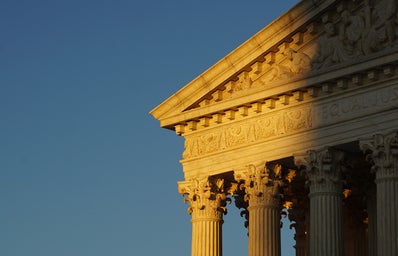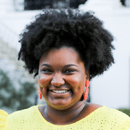I have to say, I’m a little tired of hearing how “this is not who we are” every few weeks.
On March 17, 2021, a man shot eight people in Atlanta, Georgia. Six of them were of AAPI descent. I decided not to include his name in my article; to be frank, I don’t really care. Instead, I want to give the names of each victim.
Soon Chung Park, 74
Suncha Kim, 69
Yong Ae Yue, 63
Hyun Jung Grant, 51
Xiaojie Tan, 49
Delaina Yaun, 33
Daoyou Feng, 44
Paul Andre Michels, 54
(I learned the names of the victims from an Instagram post by The Washington Post.)
When questioned by police, the shooter stated that the attack was not one of racism. Instead, he stated that he wanted to eliminate a sexual temptation. Regardless of whether or not he was being truthful when he spoke to the police, this admission reveals a painful intersection of oppression: misogyny and fetishization.
The AAPI community, AAPI women in particular, must suffer through the model minority stereotype. As one of the most high-earning and prosperous demographics, AAPI people are often pitted against their minority counterparts, mainly Black people, in order to perpetuate this idea that if a minority just did what was “acceptable,” then they would be worthy of being accepted. This impossible standard, coupled with the disgusting sexual obsession towards AAPI women, has been used as a tool to drive wedges between minorities in the United States.
That being said, there’s an important point that must be made when it comes to talking about issues that specifically reflect minorities.
Instead of calling on other oppressed groups to learn how to support one another, it’s time for the media to take a step back and acknowledge the hand that white privilege, and white supremacy, played in the attack.
Before this statement is misconstrued, I will explain further. I’m not saying that minority groups should not support each other. My oppression as a Black woman is different from that faced by the AAPI community, and I have no issue standing up for them as many have stood up for me. My observation comes into play when it comes to the media absolving themselves and our Western society from any guilt in the contribution to anti-AAPI sentiments, especially during the time of COVID-19.
The fact that many people knew the murderer’s name before the victims or knew his motive and heard his reasoning is an example of white privilege. The fact that he is being humanized by the police and media alike is an example of white privilege. And the fact that his shooting spree could be attributed to a “bad day” is an example of white privilege.
Minorities are not given the opportunity to be humanized by the media. We do not enjoy the luxury of the police sympathizing with us. Minorities are often discredited and disregarded, pushed into a distinction created for many by the actions of a few. Why do we still hear “jokes” about 9/11 when the conversation turns to Islam? What about racially insensitive name-calling towards those of clear AAPI descent? (And don’t even get me started on how most people only see Asia as China, Japan and Korea, effectively erasing millions of people’s AAPI identity.)
The protection of humanity is often extended to those based on skin color and the shooter being a man helped him here as well. This white privilege perpetuates itself into white supremacy. This is the belief and overall environment that treats white people as if they are superior to others because of the skin color they were born into. While most people will acknowledge that this is wrong, too few will recognize its existence. Even fewer will admit how it is beneficial.
White supremacy is not always a person being a KKK member or a Nazi. It can show itself in the everyday treatment of Americans—who is seen as attractive, who is worthy of earning respect, who holds more power in society overall. It can also show itself in a headline, in the handling of a case or in the aftermath of a fatal shooting.
Now that we’ve acknowledged where the case went wrong, we also need to break it down to its bare bones.
Let’s not pretend like this kind of attack is out of the blue.
For too long, AAPI people have been regarded as a singular group, pushed into the aforementioned “model minority” stereotype. They have been screaming this for years, and I am going to echo what they have been saying this whole time.
Asia is more than just China, Japan and Korea. Asia is a continent, not a single country. Their culture is just as important and valuable as others. They should be able to exist as people without having to trade off blatant racism for its casual counterpart, one that will usually manifest in objectification.
The Western world has a documented history of racism when it comes to Asia and its inhabitants. Whether it be the Opium Wars, where the British were directly correlated to the trade routes pumping the drug into China, or the promiscuous stereotype placed on Chinese women in the middle of the 19th century, attacks have been levied against these groups for decades at this point. When looking at the United States specifically, actual acts of legislation were written against immigration from these communities. The Page Act of 1875 was used as a way to limit women of AAPI descent from entering the country, banning “the importation of women for the purposes of prostitution.” The Chinese Exclusion Act of 1882 was an intentional attempt to limit the amount of Chinese people who entered the country. It kept Chinese people from becoming naturalized and stopped immigration from China into the United States for 10 years.
These policies and practices of the past serve as an example of two things. First, anti-AAPI sentiments are not new. You’re just now seeing them. AAPI people have faced discrimination and racism from the West for centuries. Just because you’re recognizing it for the first time does not mean it wasn’t always there. Second, as I mentioned earlier, people too often believe that Asia is consolidated to China and nothing else. These exclusionary practices are an example of that. I guess the racism clouded their ability to read world maps too.
Before I finish, I want to end with this.
This is a time for each and every one of us to uplift and support the AAPI community.
Read, write, protect. These communities are grieving right now. They have lost friends, family members, people who they saw every day. It is our time to help them in what they need and to encourage them to lean on us as much as possible.
It’s time for us to stand in solidarity. It’s time for us to recognize that AAPI people are being oppressed and persecuted because of racism and sexualizing. According to Stop AAPI Hate, 3,795 incidents were reported through the course of the last year, and women reported these events at a rate 2.3 times higher than men.
Make sure that you are doing the work on your own. Your friend should not have to expend emotional capital in order to teach you how to recognize their community as human. You should not be sharing an Instagram story for the purpose of approval on Instagram. Understand that if you’re saying, “this is not who we are,” your version of America is different from your counterparts. While we have a less than stellar history, that does not mean that we cannot always work to make it better.
Each of the people shot on March 17 were human beings with lives. They had dreams, hopes and aspirations. They had loved, they had lost. They had family, they had memories and they felt all the emotions the rest of us did. They deserve to be alive today.



